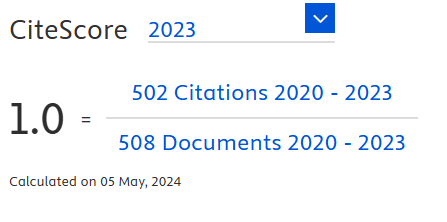MUTATIONAL CONSERVATION, EVOLUTIONARY AND FUNCTIONAL UNDERSTANDING OF PROTO-ONCOGENE c-FOS
DOI:
https://doi.org/10.18006/2021.9(4).464.471Keywords:
C-Fos, Proto-oncogene, Phylogenetic tree, UPGMA, MEGAAbstract
c-Fos protein has a function in different types of cancers and is expressed mostly in neurons. It is a human homolog of the viral oncogene. c-Fos is a member of the FOS gene family, these genes interact with the JUN family member to form transcription factors and play a major role in neurons cell development. These genes were also used as an early marker, in neuronal cells to determine early growth and functional features of the neuroendocrine system. Losses in gene function due to mutation leads to neuronal death and have a function in apoptosis. This study has performed mutational conservation in the c-Fos gene across different species. the c-Fos protein sequence was retrieved from the UniProt database (P01100). Total forty nine (49) homologous sequences with the c-Fos protein sequence were identified using the BLASTp tool. Multiple sequence alignment (MSA) and phylogenetic tree construction was done using the MEGA tool. The phylogenetic tree shows that the c-Fos protein of Homosapiens was closely related to Pan troglodytes. UPGMA tree also shows the evolutionary relationship between c-Fos proteins and with the other 49 species included in the dataset. Evolutionary study shows that Myotis species was the common evolutionary species and predicted as root for all other species hence c-Fos gene might have an evolutionary link with these species. Myotis are the most wide diverged species and belongs to the genus of bats. This study highlights the similarity and evolutionary relationship of the c-Fos gene. In this research detailed analysis of evolutionary analysis, PPI, GO, Disease Enrichment was done to understand the functional and evolutionary aspects of c-FOS protein. This study identifies the evolutionary relationship, protein-protein interaction and pathway enrichment of the c-FOS protein. This research can be further extended to include ligand screening and identification of potential ligand against c-FOS protein for drug development and discovery.
References
Almutairi B, Charlet J, Dallosso AR, Szemes M, Etchevers HC, Malik KT, Brown KW (2019) Epigenetic deregulation of GATA3 in neuroblastoma is associated with increased GATA3 protein expression and with poor outcomes. Scientific Reports 9(1):1-12.
Ding Y, Hao K, Li Z, Ma R, Zhou Y, Zhou Z, et al. (2020) c-Fos separation from Lamin A/C by GDF15 promotes colon cancer invasion and metastasis in inflammatory microenvironment. Journal of Cellular Physiology 235(5):4407-4421.
Fatima LA, Campello RS, Barreto-Andrade JN, Passarelli M, Santos RS, Clegg DJ, Machado UF (2019) Estradiol stimulates adipogenesis and Slc2a4/GLUT4 expression via ESR1-mediated activation of CEBPA. Molecular and Cellular Endocrinology 498:110447.
Gu G, Tian L, Herzog SK, Rechoum Y, Gelsomino L, Gao M, et al. (2021) Hormonal modulation of ESR1 mutant metastasis. Oncogene 40(5):997-1011.
Herrera DG, Robertson HA (1996) Activation of c-fos in the brain. Progress in Neurobiology 50(2-3):83–107. https://doi.org/ 10.1016/ s0301-0082(96)00021-4
Kallergi G, Tsintari V, Sfakianakis S, Bei E, Lagoudaki E, Koutsopoulos A, et al. (2019) The prognostic value of JUNB-positive CTCs in metastatic breast cancer: from bioinformatics to phenotypic characterization. Breast Cancer Research 21(1):1-13.
Khanal P, Patil BM (2020) Gene ontology enrichment analysis of α-amylase inhibitors from Duranta repens in diabetes mellitus. Journal of Diabetes & Metabolic Disorders 19:735-47.
Kumar S, Stecher G, Li M, Knyaz C, Tamura K (2018) MEGA X: Molecular Evolutionary Genetics Analysis across computing platforms. Molecular Biology and Evolution 35:1547-1549.
Lemoine F, Entfellner JBD, Wilkinson E, Correia D, Felipe MD, De Oliveira T, Gascuel O (2018) Renewing Felsenstein’s phylogenetic bootstrap in the era of big data. Nature 556(7702):452-456.
Li M, Zhang D, Ge X, Zhu X, Zhou Y, Zhang Y, et al. (2019) TRAF6-p38/JNK-ATF2 axis promotes microglial inflammatory activation. Experimental Cell Research 376(2): 133-148.
Machado NL, Abbott SB, Resch JM, Zhu L, Arrigoni E, Lowell BB, et al. (2018) A glutamatergic hypothalamomedullary circuit mediates thermogenesis, but not heat conservation, during stress-induced hyperthermia. Current Biology 28(14): 2291-2301.
Moench KM, Breach MR, Wellman CL (2019) Chronic stress produces enduring sex-and region-specific alterations in novel stress-induced c-Fos expression. Neurobiology of Stress 10: 100147.
Morandi-Raikova A, Mayer U (2020) The effect of monocular occlusion on hippocampal c-Fos expression in domestic chicks (Gallus gallus). Scientific Reports 10(1): 1-13.
Nguyen NT, Du K, Akakpo JY, Umbaugh DS, Jaeschke H, Ramachandran A (2021) Mitochondrial protein adduct and superoxide generation are prerequisites for early activation of c-jun N-terminal kinase within the cytosol after an acetaminophen overdose in mice. Toxicology Letters 338: 21-31.
Sagata N, Kato TA, Kano SI, Ohgidani M, Shimokawa N, Sato-Kasai M, et al. (2017) Dysregulated gene expressions of MEX3D, FOS and BCL2 in human induced-neuronal (iN) cells from NF1 patients: a pilot study. Scientific Reports 7(1): 1-8.
Santos IGD, Carneiro VQ, Silva Junior ACD, Cruz CD, Soares PC (2019) Self-organizing maps in the study of genetic diversity among irrigated rice genotypes. Acta Scientiarum Agronomy 41:DOI: https://doi.org/10.4025/actasciagron.v41i1.39803.
Shui X, Chen S, Lin J, Kong J, Zhou C, Wu J (2019) Knockdown of lncRNA NEAT1 inhibits Th17/CD4+ T cell differentiation through reducing the STAT3 protein level. Journal of Cellular Physiology 234(12): 22477-22484.
Silva BA, Burns AM, Gräff J (2019) A cFos activation map of remote fear memory attenuation. Psychopharmacology 236(1): 369-381.
Singh G, Fritz SE, Seufzer B, Boris-Lawrie K (2020) The mRNA encoding the JUND tumor suppressor detains nuclear RNA-binding proteins to assemble polysomes that are unaffected by mTOR. Journal of Biological Chemistry 295(22): 7763-7773.
Stanisavljević A, Perić I, Gass P, Inta D, Lang UE, Borgwardt S, Filipović D (2019) Brain sub/region-specific effects of olanzapine on c-Fos expression of chronically socially isolated rats. Neuroscience 396: 46-65.
Stott CM, Bobay LM (2020) Impact of homologous recombination on core genome phylogenies. BMC genomics 21(1): 1-10.
Waman VP, Vedithi SC, Thomas SE, Bannerman BP, Munir A, Skwark MJ, et al. (2019) Mycobacterial genomics and structural bioinformatics: opportunities and challenges in drug discovery. Emerging Microbes & Infections 8(1): 109-118.
Wu CC, Jin LW, Wang IF, Wei WY, Ho PC, Liu YC, Tsai KJ (2020) HDAC1 dysregulation induces aberrant cell cycle and DNA damage in progress of TDP‐43 proteinopathies. EMBO Molecular Medicine 12(6): e10622.
Zhu S, Song W, Sun Y, Zhou Y, Kong F (2020) MiR‐342 attenuates lipopolysaccharide‐induced acute lung injury via inhibiting MAPK1 expression. Clinical and Experimental Pharmacology and Physiology 47(8): 1448-1454.
Zorzo C, Méndez-López M, Méndez M, Arias JL (2019) Adult social isolation leads to anxiety and spatial memory impairment: Brain activity pattern of COx and c-Fos. Behavioural Brain Research 365: 170-177.
Zuckerkandl E, Pauling L (1965) Evolutionary divergence and convergence in proteins. In: Bryson V, Vogel HJ (Eds.) Evolving Genes and Proteins, Academic Press, New York, Pp. 97-166.
Downloads
Published
How to Cite
Issue
Section
License

This work is licensed under a Creative Commons Attribution-NonCommercial 4.0 International License.












